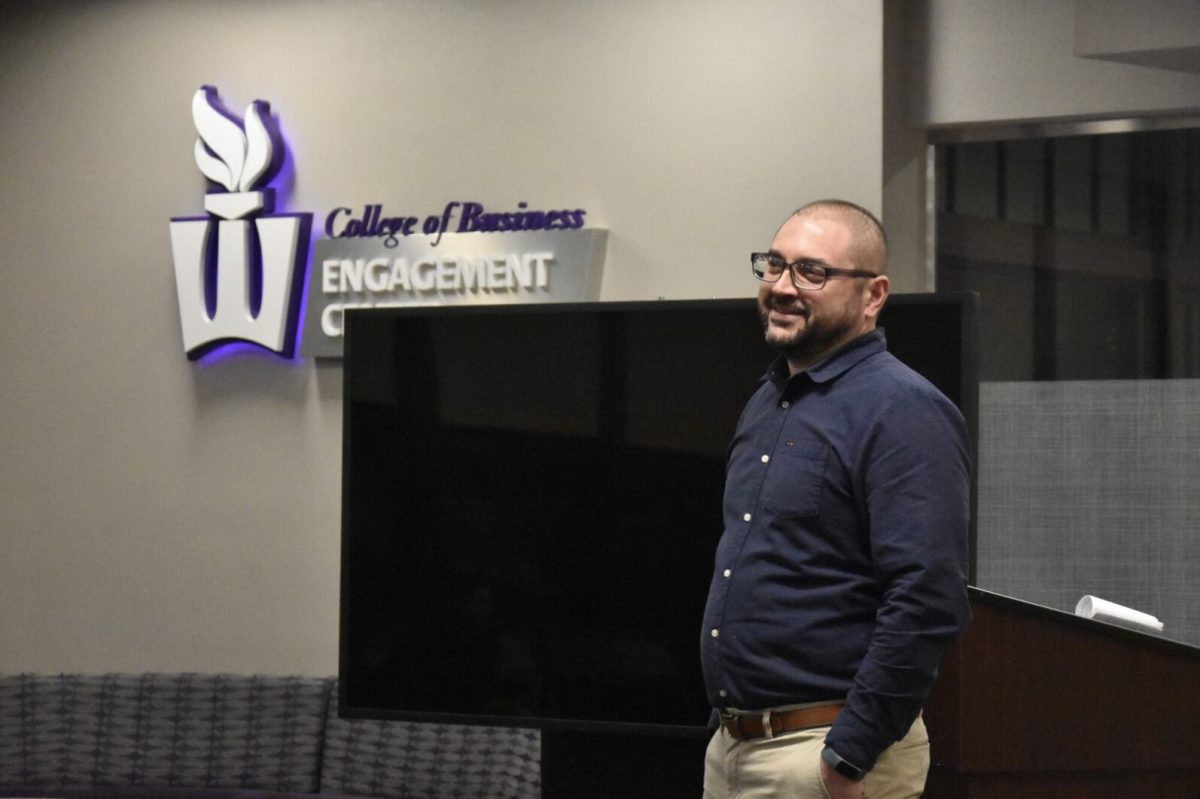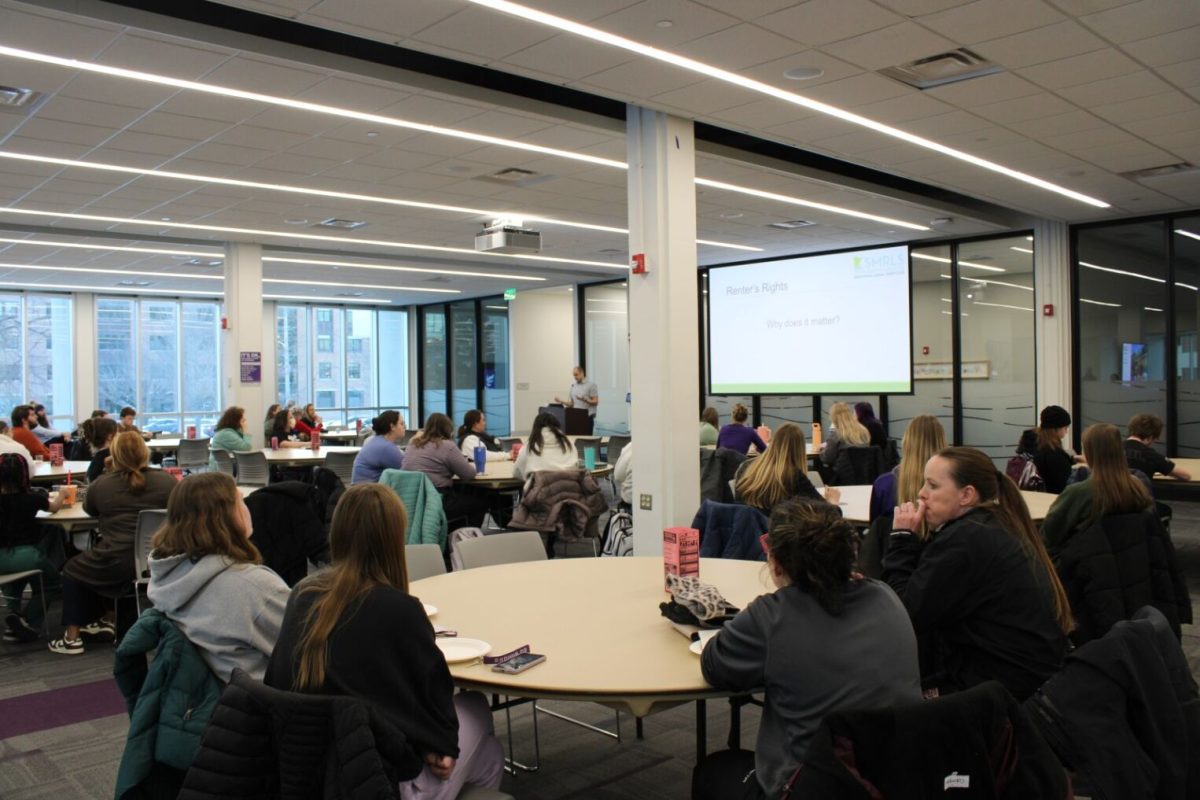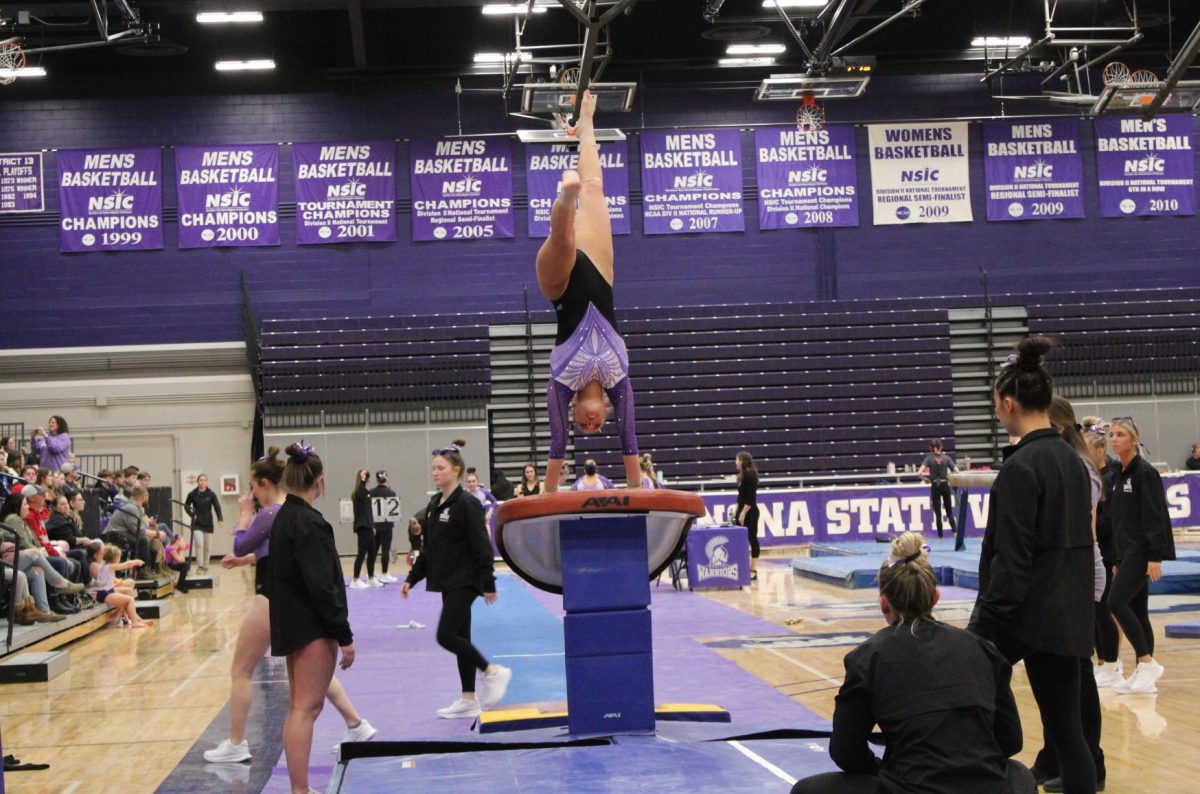Jessica Bendzick/ Winonan
For the fifth year in a row, Winona State University has been recognized as one of the country’s most sustainable colleges in The Princeton Review’s Guide to 332 Green Colleges.
Colleges are selected based on how strong they demonstrate sustainability in campus activities, infrastructures and career preparation.
With Winona State being one of the seven universities honored in Minnesota, chair of the sustainability committee Joan Francioni was encouraged by this national recognition.
“Being on that list gives outsiders a little definition of who we are,” she said, “It serves as a statement of our values: who we think we are and who we want to be.”
Francioni said Winona State as a whole is paying attention to its sustainability.
“There is a lot of faculty and student interest in how we live sustainably as a campus,” she said.
For example, the Integrated Wellness Complex uses a lot of natural lighting, and the garden outside of the building consists of native plants that are able to handle the rain, sun and cold temperatures that Minnesota goes through.
Winona State is also monitoring a more conscious pesticide system to keep the grounds looking nice but not harm pollinators, such as bees and butterflies, in the process.
“How do we have a good, full, rich life but not detract from the future generations’ ability to also have that?” Francioni said. “That’s what sustainability is all about.”
As for academics, Winona State offers a sustainability minor and provides numerous classes that introduce environmental concepts to students.
Also, the recreation tourism and therapeutic recreation department organizes outdoor educational events, such as hiking and rock climbing.
“When you put all those things together, there’s lots of ways for students and our broader community to be learning about these issues and practicing some of them,” Francioni said.
The Environmental Club members are looking to add to sustainability by focusing on the Winona State greenhouse this semester. They are hoping to someday plant and produce enough vegetables to provide fresh produce for the Kryzsko salad bar.
The club’s weekly meetings are held at the greenhouse.
Environmental Club president Mary Schulberg said, “We are lucky because we have passionate members who are really into this stuff. We are doing a lot compared to other universities.”







































